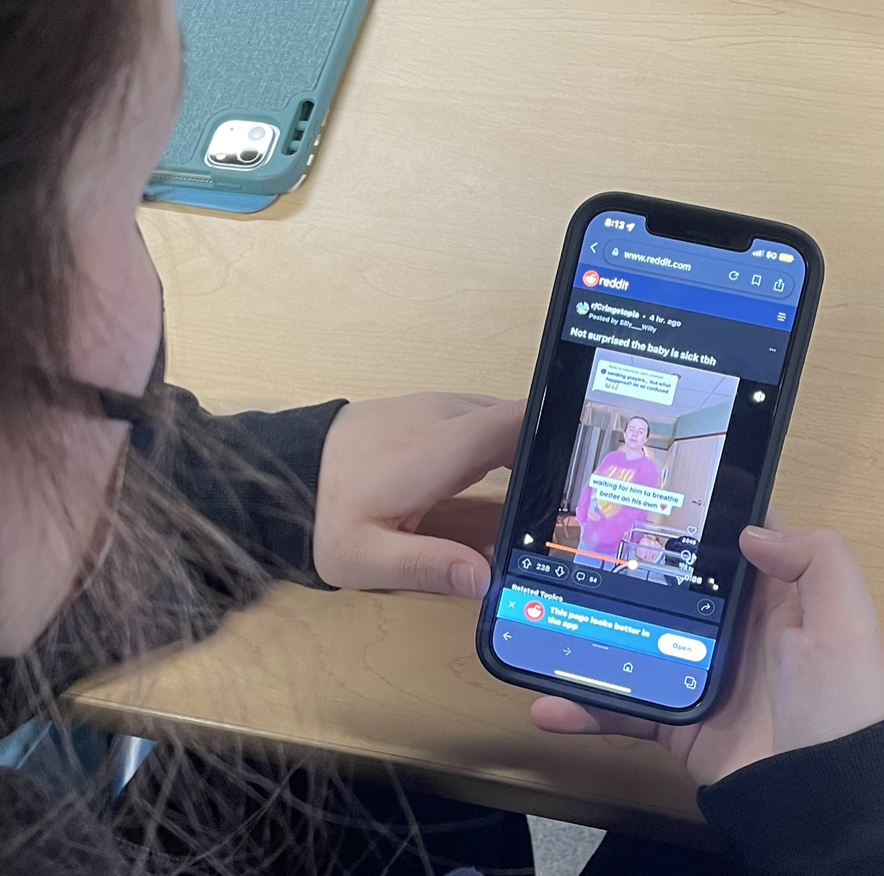It’s time for ‘cringe culture’ to be a thing of the past
Cringe culture is regularly encouraged on the internet in places such as Reddit forums or TikTok videos.
February 25, 2022
In the era of the internet, trends go away just as fast as they start and pop culture is constantly evolving. Despite the fleeting nature of the web, one thing has remained consistently popular in recent years: Cringe.
The generally accepted meaning of cringe culture is the act of making fun of or insulting someone for doing something deemed “cringey” even when it doesn’t harm anyone else. In many cases, it is completely harmless, lightly teasing something silly that someone does or a quirky interest, but at times, even the most innocent jokes can get out of hand and border on bullying or discrimination.
The trend of cringe culture really took off in the mid-2010s with the popularity of YouTube cringe compilations—videos where people would compile various media for the vicious purpose of amusing people with how “cringey” it is. This spiraled into Reddit forums such as r/cringetopia that are just breeding grounds for unkindness and intolerance.
Today, most mainstream cringe culture uses TikTok to mock other people on the internet. People will attempt to humiliate those secure enough to share themselves with the internet just for likes and validation from strangers without regard for the harm they may be inflicting on the jokes’ subjects. Oftentimes the things that get made fun of were once trendy. If you talked about playing “Among Us” in fall of 2020, listened to Ed Sheeran in 2015 or wore a mustache printed infinity scarf in 2012, you would be considered trendy; meanwhile today, you would be considered cringey.
This is indicative of a larger issue that people fall victim to: Consumerism. In theory, society likes to praise individuality, yet in reality, people are punished socially for not following the flow of every small fad. People face unsolicited criticism for their personal styles or preferences; the ones mocking them are the people that let brands, influencers and celebrities decide what they like for them and immediately move on to something else the next month.
Unfortunately, fashion and interests are not the only things that cringe culture attacks.
In 2021, a Tik Tok user named Sabrina Prater went viral for posting videos of her dancing. People were quick to point out that based on the background of her videos, she was living in poverty. Prater was mocked for her clothes and makeup, for being transgender, for the way she danced, for being a drug user and for her financial need. For weeks after her video went viral, people would remake and repost her video, imitating her and making cruel conspiracies about her, some going as far as saying she was a serial killer and was holding people hostage in her house.
Cringe culture targeted Prater like it does many other vulnerable populations. If you are disabled, LGBTQ+, a person of color or poor and just happen to be confident enough to post on the internet, people may justify their bigotry with humor under the guise of cringe culture. Cringe culture normalizes malicious words and actions and makes the internet even more isolating than it already is.
Cringe culture as we know it must die. People aren’t necessarily wrong for their mean thoughts, but to create hostility on the internet over harmless traits and behaviors isn’t excusable. With any luck, kindness will come into trend as much as cringe has.




